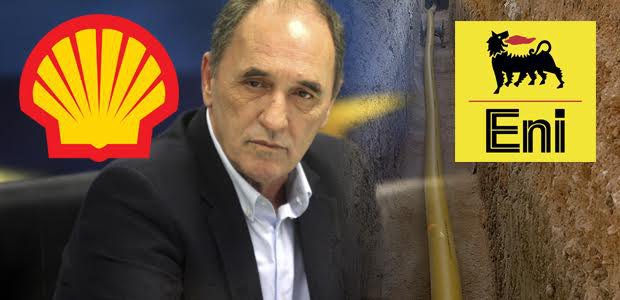Shell, a 49 percent shareholder of gas supplier EPA Attiki, covering the wider Athens area, has, in a letter forwarded to energy minister Giorgos Stathakis last week, officially demanded compensation from the Greek State for the premature loss of its monopoly, energypress sources have informed.
In the letter, Shell has requested a meeting with the energy minister to discuss the issue, while the multinational has evaluated the loss of its regional monopoly, originally agreed to last until 2030, at approximately 100 million euros. Shell would be entitled to roughly half this amount as state-controlled DEPA, the public gas corporation, holds a 51 percent share of EPA Attiki.
Shell, in the letter, also enquires about a conflict of interest concerning DEPA, which, as a result of the natural gas market’s new framework, is, concurrently, the majority shareholder of EPA Attiki, its supplier, and competitor. State-controlled DEPA revised its charter to enter the retail gas and electricity markets.
Shell has asked the energy minister for DEPA’s immediate withdrawal from the retail gas market in the wider Athens area.
Eni, the holder of 49 percent stakes in the Thessaly and Thessaloniki EPA supply companies, has forwarded a similar demand to the ministry for these regional markets.
In comments to energypress, DEPA officials contended that no laws, at a European level, support such a claim.
Even so, on a recent trip to Rome, Stathakis, the Greek energy minister, is believed to have requested the Italian government’s support for a delayed withdrawal of DEPA from the EPA Thessaly and Thessaloniki ventures, sources have informed.
For quite some time now, both Shell and Eni have been presenting their case to DEPA, the Greek government, as well as the country’s lender institutions, contending that their venture partner cannot also be a competitor in the same market or a supplier for the EPA companies.
Ministry officials have questioned figures provided by Shell, noting that the effort to determine whether the multinational is entitled to compensation is complex and, if so, what this value gap could be worth.
Ministry officials contend that a value gap may not necessarily emerge if Greek public spending, in the past, on the development of gas networks and other infrastructure outlays is taken into account. Also, the EPA Attiki aand EPA Thessaly- Thessaloniki companies have received capital returns in the past, ministry officials have noted.





